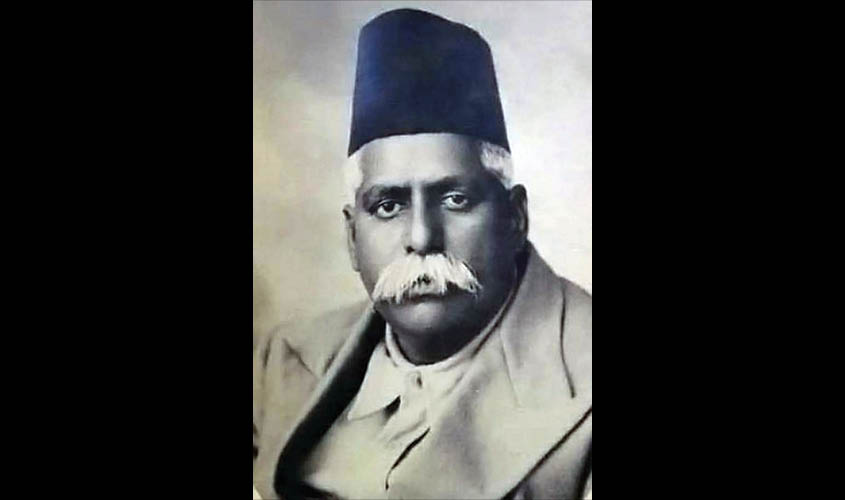He chose to create a different kind of parivar, one that rose above caste and external divisions that plagued Hindu society.
A few days before Keshav Rao Hedgewar breathed his last, he stood before a gathering of swayamsevaks and delivered what was to be his last address. Channelling all of his depleted strength, the fiery orator and freedom fighter, aware that his end was near, set forth his vision as a living testament for the organisation he had created.
He began by saying, “Swayamsevaks have come from all over the country, and what is it that draws our hearts and minds to each other? It is the Sangh that brings us together.”
Fifteen hundred swayamsevaks had gathered to hear the first sarsanghchalak speak, a modest number when compared to the numbers today, but this final address was to be a day of parting. Dr Hedgewar’s health had been failing him, and his passing was thought to be a matter of time. The man who had since its inception been at the heart of the Sangh knew he must even in his passing detach the cult of personality from the RSS. His death and how it was to be handled was to be his last act as sarsanghchalak.
With the end lingering, the organiser articulated what weighed heavy on the minds of the swayamsevaks, who held a filial affection and regard for him. The seeds of the parivar were already planted, although the RSS was only 15 years old.
“You will return today to your own places. I bid you goodbye with all affection. This is indeed a moment of parting but not of grief….Let each one of you resolve unto himself that as long as there is life, he shall never forget the Sangh…the Sangh exists not only for its swayamsevaks but also for those outside its purview.”
In short sentences, the first sarsanghchalak articulated what is known to most familiar with the RSS ideology: the Sangh is above the individual, even its sarsanghchalak, and it doesn’t seek exclusion. And it is the Sangh which remains eternal.

As he lay in bed on 20 June 1940, the great freedom fighter, Netaji Subhas Chandra Bose visited Nagpur to meet him. It was already too late, as Doctor Saab floated in and out of consciousness, at one point he asked a swayamsevak, Yadavrao Joshi, if his last rites would be performed in a military style. Always forthright and planning ahead, Dr Hedgewar rejected this assumption stating that the Sangh was a family and not a formal organisation. His last rites, he insisted, should be conducted as one would for a family member. He knew, in death as well that he set a precedent.
There is much to be traced in his life that brought him to this point of complete clarity of thought, from his beginnings as an orphaned adolescent, a revolutionary and a freedom fighter, his time in jail facing hard labour for participating in the freedom movement, his imbibing of Swami Vivekananda’s call to organise Hindu society, his conscious rejection of a comfortable life as a qualified doctor despite his poverty and his turning away from marriage and familial obligations instead choosing to create a very different kind of parivar, one that rose above caste and the external divisions that plagued Hindu society. The latter prompting Mahatma Gandhi to state, ‘“I had visited the RSS camp years ago at Wardha. At that time the founder Shri Hedgewar was alive. The Late Shri Jamnalal Bajaj-ji had taken me to the camp, and I was impressed by their rigorous discipline, the complete absence of untouchability and simplicity” (published in the Complete works of Gandhi, section 89, page 193-194).
Since his passing, the Sangh has grown exponentially, its ideology attracting lakhs into its fold. Its own definition of itself has evolved as has its engagement with society. Dr Hedgewar’s prescience and ability to view the organisation above himself meant he left no hard and fast rules that tied the organisation to him or his era, each sarsanghchalak that followed responded to his times and hence the presence and the history of the Sangh became a progressive unfolding as opposed to a listing or oracular telling. What the Sangh will be a decade from today is hard to predict, but for its core guiding principles, the only other thing that may be said with certainty is that the RSS will evolve with the nation. It has since its inception tied its destiny with that of Bharat.
Doctor Saab passed away 79 years ago, but the organisation he created is alive and growing. However, prescience was not his alone but was also exhibited by V.D. Savarkar, who said when news of Dr Hedgewar’s death reached him, “Hedgewar is dead
The man who rejected attempts of a biography on him lives on through the organisation he created.
Advaita Kala is an author and award winning screenwriter.

